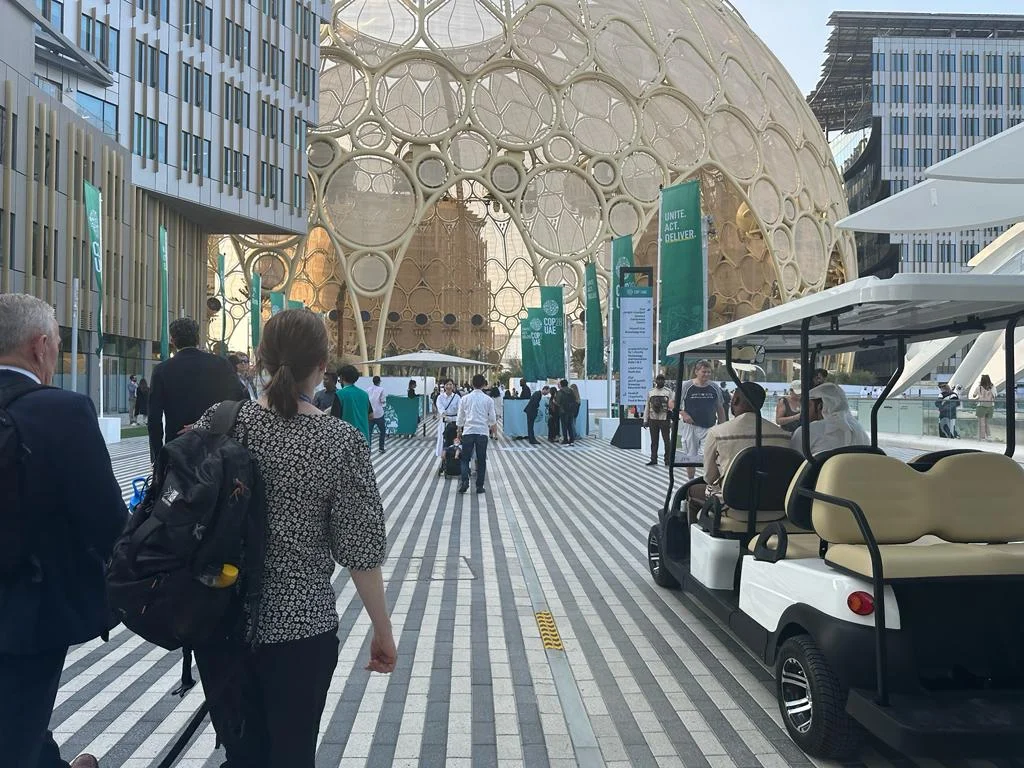Recent research shows that November 2023 was the hottest November since records began. This is the latest in a series of record-breaking temperatures, and a stark reminder of the reality that we are dealing with.
Of course, alongside surging temperatures, we are increasingly witnessing devastating floods, wildfires and droughts.
Indeed, estimates are that extreme weather has caused two million deaths in the last 50 years, and it’s a number that’s only growing.
But, of course, behind every headline and figure on the climate crisis are real people whose lives have been turned upside down, and their livelihoods destroyed, left to face a bleak future.
As the days of COP draw on, decision-makers, private sector heads and influential figures must remember this.
However, after yesterday’s revelations regarding H.E. Dr. Sultan Ahmed Al Jaber, many are questioning what this year’s climate summit can deliver.
ESG Mena takes a look at yesterday’s key developments.
Revelations on COP Presidency’s phase-out science comments
At the opening of this year’s climate summit, H.E. Dr. Sultan Ahmed Al Jaber, the first CEO to head a COP, said that he was “laser-focused” on keeping within reach a globally agreed warming limit of 1.5C, calling it his “north star.”
Yesterday, the Guardian and the Centre for Climate Reporting, revealed that while Dr. Sultan Al Jaber outlined that a phase-down and a phase-out of fossil fuel is “inevitable” and “essential,” he also claimed there is “no science” and “no scenario” that says that the phase-out of fossil fuel is “what’s going to achieve 1.5C.”
Considering the tensions are already high regarding the “phase down” or “phase out” of fossil fuels, this is likely to only add fuel to the fire.
In the exchange between H.E. Dr. Sultan Al Jaber and former Irish leader Mary Robinson, he added: “Please help me, show me the roadmap for a phase-out of fossil fuel that will allow for sustainable socioeconomic development, unless you want to take the world back into caves,” he said.
Climate scientists and activists from around the world have responded to the release of the Zoom recording, with one calling the revelation “incredibly concerning.” Professor Jean-Pascal van Ypersele, academic and climatologist, said: “You cannot negotiate with science!”
Fossil fuel expansion threatens biodiversity
A report released yesterday revealed the devastating impact of fossil fuel expansion on the planet’s biodiversity, which has already been highlighted as at a breaking point.
Produced by Earth Insight, the Leave it in the Ground Initiative and the IUCN World Commission on Protected Areas, the report found fossil fuel expansion continues to threaten a large number of protected areas and surrounding landscapes.
The report shared that “at least” 918 protected areas have ongoing or planned fossil fuel extraction projects within their boundaries.
Further, a total of 2337 active or proposed oil, gas, and coal extraction ventures within legally protected areas.
A demand for ceasefire in Palestine
Day four also saw climate activists congregate near the Al Wasl Dome for a sit-down protest against the Israel-Hamas war.
Over one–hundred activists gathered to call for a ceasefire in Gaza, which saw two organisers reading the names of the Palestinians who have been killed by Israel in the conflict.
Another day, another pledge
Amid day four controversies, more pledges and initiative announcements were relayed at COP28. This included:
- The World Bank announcing an initiative with 15 finance bosses to lower the risk of investing in climate projects in emerging economies and attract private capital for cutting emissions.
- Australia announcing it was backing the pledge to triple global energy capacity by 2050.
- The UAE Declaration on Climate, Relief, Recovery and Peace being formally launched and endorsed by 74 countries and 40 international organisations.
- Day four also marked the first ever COP health day, which saw various high-profile speakers share their thoughts on climate and health, with global donors pledging US$777 million plus to tackle Neglected Tropical Diseases.




